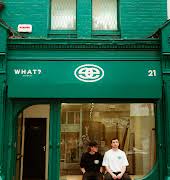By Grace McGettigan
20th Mar 2019
20th Mar 2019
The Irish Heart Foundation has launched a free CPR training programme, which aims to teach over 100,000 people how to save a life. The programme, which is called Hands for Life, will be rolled out in communities across Ireland over the next two years.
It was launched this week by the heroic nurse Aoife McGivney, who recently intervened and saved the life of a bus driver who suffered a cardiac emergency on the road.
What does the course involve?
During the free, one-hour training course, attendees will learn:
- How to recognise a cardiac arrest
- How to perform compressions, including hands-on practice on a CPR training mannequin
- How to use an AED (Automated External Defibrillator)
- How to respond to a choking emergency
- How to recognise a stroke
Why is it so important?
“Every day in Ireland, 13 people die from a cardiac arrest,” says Tim Collins, CEO of the Irish Heart Foundation.
“Around 70% of these happen at home in front of a loved one. If there is someone nearby who knows CPR and can start performing compressions quickly, you can double or even triple a person’s chances of survival,” he adds.
Related: ‘All of a sudden I was really struggling’ –
One person in Ireland dies from asthma every week
“At the Irish Heart Foundation, we are on a mission to save lives. We want to create a nation of lifesavers by training as many people as possible in the lifesaving skill of CPR. That’s why we’ve developed the Hands for Life programme and now thanks to the support of Abbott and ESB Networks, we will train 100,000 people in the next two years which will, in turn, improve people’s chances of surviving a cardiac arrest in Ireland.”
CPR – four steps for survival
Should a cardiac emergency happen near you and you’re not sure what to do, memorise the followings steps:
Step 1: If you see a person suddenly collapse, check for a response. Call their name and shake them gently on the shoulder.
Step 2: If there is no response call 112 or 999 immediately to get help on the way.
Step 3: If the person is still not responding and is not breathing normally, then make sure the person is lying flat on their back on the ground. Kneel close beside them and place your two hands on the centre of their chest in line with their nipples, one on top of the other, and keep your arms straight.
Step 4: Start compressions. Push hard and fast. Push down at least five centimetres or two inches and push at a rate of 100-120 beats per minute. The Bee Gees song ‘Stayin’ Alive’ is the perfect CPR rhythm. Keep going until the emergency services arrive.
Handy Tips
Tip 1: When you call the emergency services, put your phone on loudspeaker so that you can immediately start compressions while speaking to the emergency call-taker.
Tip 2: Know your Eircode. This will help the emergency services find you.
Tip 3: Always remember, you can do no harm by starting CPR. It is better to give CPR to someone who doesn’t need it than not to give it to someone who does. By starting CPR immediately, you can double or even triple a person’s chances of survival.
To find out more and sign up for a local training course, visit HandsForLife.ie.
Photo: Pexels
More like this:























